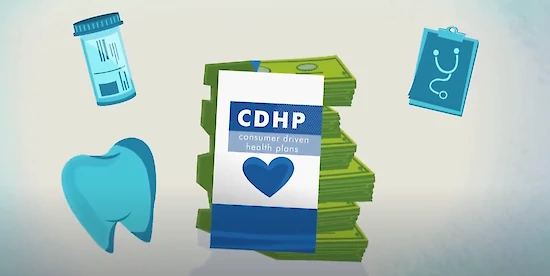
Turn To Your HSA When You’re Expecting a Baby
If you’re welcoming a baby into the world, a nursery and cute clothes may be on your radar. But your health savings account (HSA) should be on your radar, too! Here’s some insight into what having a baby ― and adopting a child ― means for your HSA.
Before the baby arrives
Pregnancy introduces a variety of health needs for women. Fortunately, your HSA covers many items that may be useful to you during the family planning process and pregnancy, including eligible fertility and pregnancy tests. Other useful items covered by your HSA include:
- Maternity support belts
- Compression socks
- Prenatal vitamins
- Feminine hygiene pads
- Birthing, breastfeeding, and Lamaze classes
- Office visits
- Ultrasounds
- Prenatal massages (if they’re accompanied by a doctor’s note or a medical necessity form)-+
When the baby arrives
HSA support doesn’t stop short of the delivery room. It extends to midwifery services and medical services provided by doulas ― although non-medical doula services (such as emotional support, childcare, and housekeeping) are not covered.
If your newborn has an existing or imminently probable disease that umbilical cord blood is intended to treat, a doctor’s note or medical necessity form might also qualify umbilical cord blood storage for your HSA dollars.
After the baby arrives
Modifying your coverage
You should add your new baby to your health insurance plan immediately. If you have a family-coverage high-deductible health plan (HDHP), your HSA contribution limit will not change since you already can contribute the family contribution limit.
However, if you’re switching to family coverage for the first time, your HSA contribution limit will increase from the self-only limit to the family limit on the first day of the first full calendar month of family coverage. For example, if you have a baby in mid-January and switch to a family-coverage HDHP at that time, your HSA contribution limit will increase effective February 1.
Postpartum expenses
HSA dollars may cover many of your postpartum care health expenses, including breast pumps and supplies. They also cover health and wellness expenses for your children, including doctor’s office visits, rash cream, thermometers, and more.
Mental health care is vital during all stages of life, including during seasons of change for your family. Remember that your HSA covers counseling to treat diagnosed medical conditions for you and your dependents.
What about adoption?
Although the expenses and fees of the adoption process are not covered by your HSA, your adopted child’s medical expenses become eligible for coverage the moment the adoption is finalized.
Still have questions?
We’ve only scratched the surface of HSA-eligible expenses related to family planning, pregnancy, birth, and children. If you want to see whether a certain item is eligible for coverage or reimbursement, check out this comprehensive, searchable eligible expense list.
Learn more about how Aviben can elevate your organization’s approach to employee benefits today.










